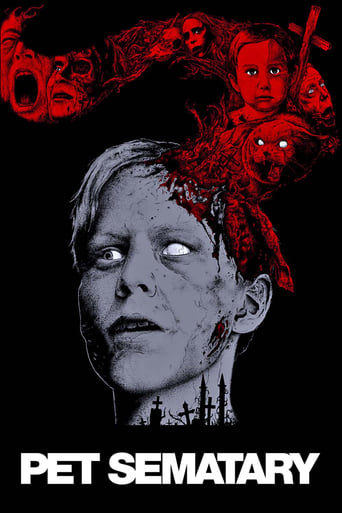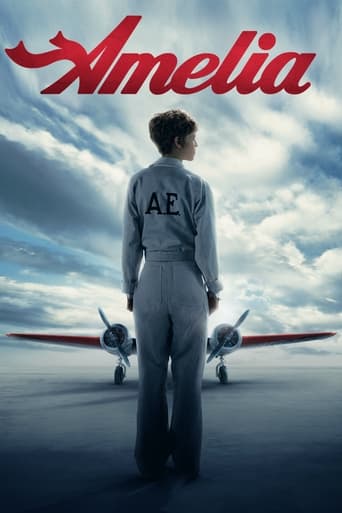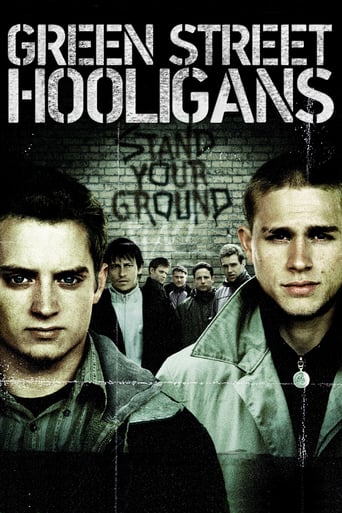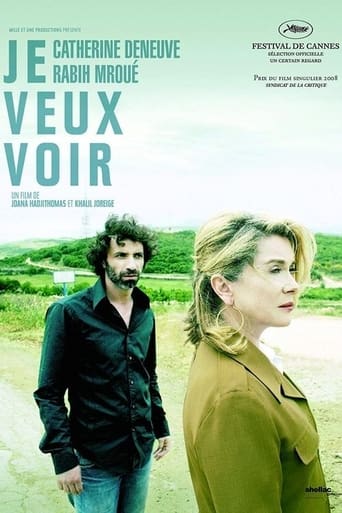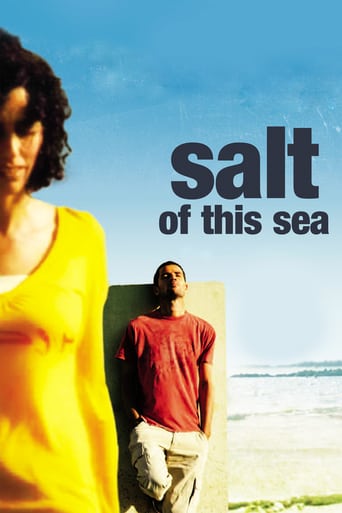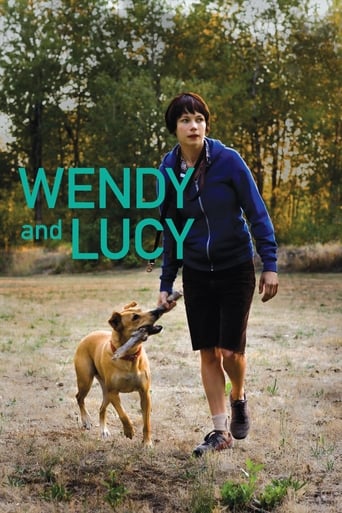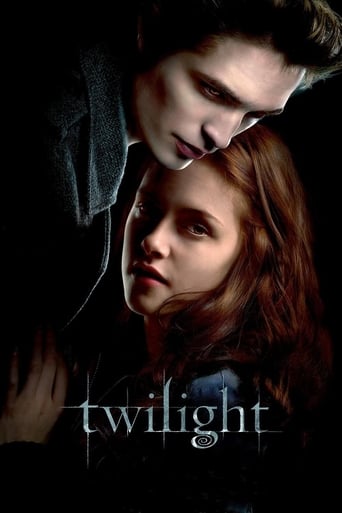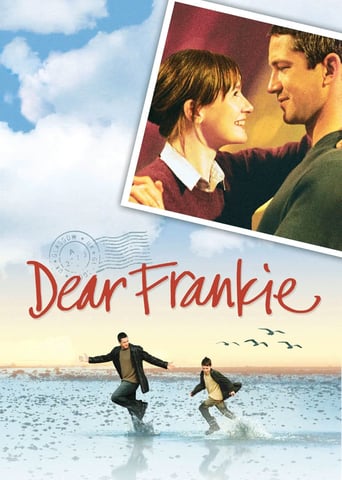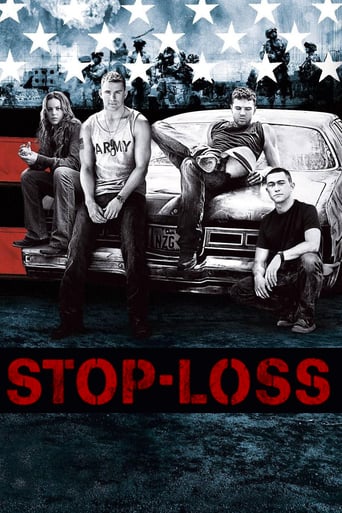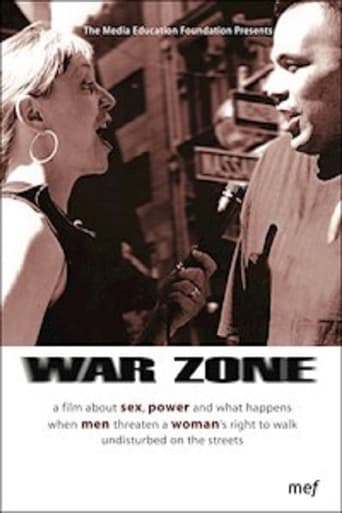
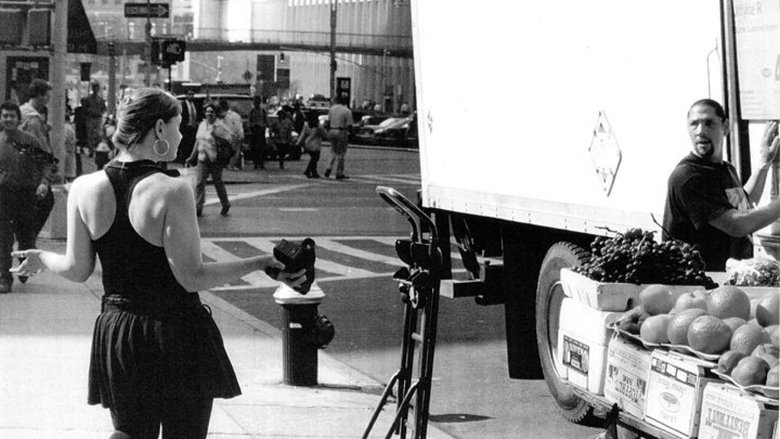
War Zone (1998)
Maggie Hadleigh-West walks crowded urban streets carrying a video camera and microphone, trailed by one or two women also with cameras. Whenever a man harasses her, with ogling or words, she turns the camera on him, moves in close, and questions his behavior.
Watch Trailer
Cast


Similar titles
Reviews
Strong and Moving!
Fresh and Exciting
Tells a fascinating and unsettling true story, and does so well, without pretending to have all the answers.
A terrific literary drama and character piece that shows how the process of creating art can be seen differently by those doing it and those looking at it from the outside.
As someone who has always been encouraged to just ignore sexual harassment I found watching this documentary empowering, it made me very happy to see a woman taking the power back and turning the objectification and invasion of space onto the men who cat-called her. I liked the anger and incredulence/bewilderment of the girl Natasha towards guys who street harass, the interview with Natasha & her mother was my favorite part of this film. I also liked the irony and obvious inappropriateness of stranger guys cat-calling a lesbian girl. Did I feel sorry for the men Maggie interviewed? If those men were embarrassed through her camera & questions, they were only embarrassed because of their own behaviour. If they were embarrassed that they were on film then that's their problem, they were behaving that way in public. I felt a bit sorry for them but I think they got what they deserved; they got a taste of having their space invaded by a stranger on the street; and they wouldn't have been embarrassed by her filming their public behaviour if they knew they had done nothing wrong.The question that is most important for men in this documentary is, "would you want strangers to behave like that towards your sister or your mother?" Most guys don't sexually harass, but enough do so that almost every women is the victim of sexual harassment on the street - usually starting from when they are quite young (10-14 years old). I had a friend who (like that 14yo girl who was interviewed) was stalked by a man on the street when she was about 12, she escaped but it really terrified her. It must be particularly hard for women/girls who are very attractive, they must get constant sexual harassment on the street. Street harassment that I have experienced has made me have my guard up all the time now when I walk past men. I am less trusting. I've prepared myself to be someone who does NOT look around if anyone calls out to me (because I don't want to be embarrassed, I don't want them to 'make me look'). Maybe I am extra-sensitive to street harassment compared to most women, but so what.Being sexually harassed by men on the street makes me feel embarrassed, insecure, disrespected & like the men view me the same way they view women in strip clubs (but I don't get paid to be eye candy). It's been odd for me to be told on my way to school or university by complete stranger men that I'm valuable because I look good. I've always felt safer at University or school because there I was valued for the work I did & who I was (not for my body).
This film brings up important issues but fails to make any interesting observations or connections. For example, there is the teenage girl who is leered at by some adults while walking in the street. It's disturbing, no doubt, but there is little commentary or significance attached to this in the film. Pedophilia, objectification of women? They're shown here, but without insight. There is also a shot of a man with his penis out at one point in the film, but it seems more for shock value than anything else. The 911 rape call is disturbing and scary, but, again, no connections are made to the objectification of women and rape.The bulk of the film is confrontations of people who leer at or otherwise harass the filmmaker. In these episodes she asks them why they do this. Much of the time the subjects walk away or insult her, which certainly makes for nice documentary footage but does not help to illuminate the subject.The filmmaker has good intentions and it probably will provoke some thought among its viewers, but as a film and societal study it does not delve deep enough into the issues of the objectification of women and violence against women.
Too many educational programs about sexism, sexual harassment, and sexual violence focus solely and intensely on the perceptions and experiences of the targets of these individual and institutional forms of discrimination. In doing so they fail to address or spotlight the actual roots of sexism: male privilege and men's abuse of the resulting power they are afforded-abuse intended to maintain their privilege, power, and control over women. The lack of a critical examination of the motivations, actions, and intentions of male predators leads in many cases to a societal problemization of women: `She shouldn't have worn that short skirt'; `Why did she go to his apartment'; `She shouldn't have gotten drunk'; and the ultimate denial of male responsibility, `She brought it on herself!' War Zone, a film by Maggie Hadleigh-West, literally turns this approach to understanding sexism, harassment, and violence on its head. The filmmaker shines the spotlight, and her video camera, on men whose actions and attitudes perpetuate a social context in which women are at best objectified and at worst abused, raped, or killed by men, often with little or no consequence.The context for War Zone is powerful in its simplicity. Hadleigh-West, equipped with a video camera, walks through four major cities (New York, San Francisco, Chicago, and New Orleans) to record the day-to-day abuse-sexualized comments, objectifying stares, uninvited physical contact, and other forms of harassment and sexism-women experience that rob them of the basic right to walk safely and comfortably in their own neighborhoods (or anywhere else). She challenges the continued institutional denial of sexism and its implications by documenting what may be its most pervasive and effective element-that even in the most public spaces, women must operate and function in a war zone.But instead of interviewing street harassment scholars or centering her own reactions to and perspectives on her abuse, Hadleigh-West turns the camera, and the heat of the spotlight, on her abusers. The film documents her confrontations with those abusers, but focuses tightly on their reactions to the turning of the tables. Every time she experiences harassment (which runs the gamut from objectifying stares to being followed) she directly turns the camera on the perpetrator. As a result, her abusers as well as (or including) male War Zone viewers, are forced to think and reflect more critically about the ways men maintain dominance and control. More specifically, the film illustrates how men continuously cycle sexism through what many men have traditionally argued to be harmless or natural interactions.Among all of the films related to sexism, harassment, and violence I have reviewed, War Zone, in both its form and content, stands out as the most unique, powerful, and important contribution to anti-sexist education. It elicits emotional responses from both women and men precisely because it is real, unstaged, honest and raw. It disallows the overwhelming comfort of denial by men. Meanwhile, the film demands a new urgency to establish space and validation for women to confront sexism in its most pervasive individual form, putting the onus of responsibility for change on those who benefit from its institutional form.This film can provide an especially powerful educational experience for high school and college students, but is appropriate for anybody in their teenage years or older. Every American Studies, Women's Studies, Cultural Studies, Sociology, and Psychology program should have a copy of War Zone in its library. It will also be an invaluable resource for activists or trainers who conduct workshops on sexual harassment, sexism, sexual violence, street harassment, masculinity, male identity, male privilege, and related topics.
This film should be shown to any boy on the cusp of manhood. The point of the film isn't to denigrate men, it's to remind them of the imbalance of the power relationship between the sexes. While I agree that Hadleigh-West occasionally seems overly sensitive, I think the film serves as a reminder that the line between flirtation and harassment is an invisible one, and the line is going to move considerably from person to person. The film was most effective when it confronted men who seemed willing to think or debate reasonably about their actions, but entertainment value is provided by some out and out male chauvinist pigs and Bible thumpers. There's even a nice old Jewish grandpa who gets the funniest moment in the film. My only major complaint is that sometimes the filmmaker settles on subjects who are clearly mentally handicapped, addicted to drugs or alcohol, or both. Powerful, unsettling, and thought provoking filmmaking.


